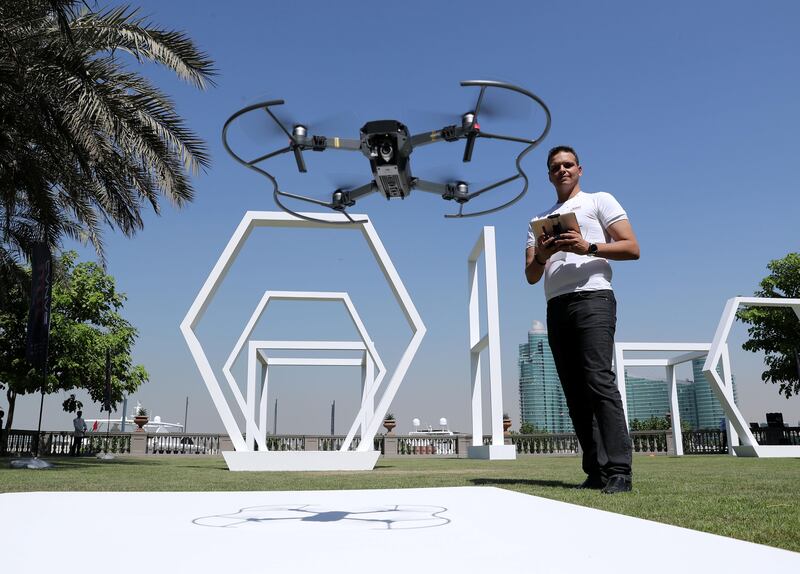Drones are likely to experience similar growth to that predicted of autonomous cars in the near future as urban airspace around the world becomes filled with unmanned aircraft systems.
Aviation experts speaking at the UAS Forum in Dubai said managing drone traffic will become a crucial aspect of city planning as the use of autonomous aircraft becomes more common.
As the autonomous vehicle industry promises to make roads safer, drone developers claim traffic will be taken off the roads and into the skies to help ease congestion.
Market analysts Tractica are predicting consumer shipments of drones to increase globally to 70 million by 2021, when revenue in the industry is expected to reach US$5 billion.
More commercial companies are expected to utilise drone delivery services in future, particularly in emerging smart cities like Dubai and Singapore.
The air traffic management research institute at Nanyang Technology University, Singapore is focusing on how to develop a safe and reliable system suitable for use in an urban airspace.
“In Singapore, our focus has been on traffic management of unmanned aircraft systems within an urban environment,” said Mohammed Salleh, deputy director and senior research fellow the university,
“Managing drones at low altitude in urban areas is something that needs to be planned for, as they will be driving the economy in future.
“Drones will likely be used for special operations involving mundane patrols or inspections that may be dangerous for human inspectors to go.
“They will have many applications in densely populated cities like Singapore and Dubai, but those areas require a reliable framework for safe and efficient operations.
“There is not a one-size-fits-all solution, as every city has different demands depending on its infrastructure.”
________________
Read more:
[ After drone collision over Canada, UAE authorities have unlicensed devices in their sights ]
[ Are delivery robots taking over your streets? ]
_________________
Comparisons have been made between Dubai and Singapore as both are evolving as smart cities built around technology.
The research institute is working on plans to help drones detect and avoid each other as many are expected to be autonomous in future, providing logistical services to free up road space.
As in Dubai, regulations in Singapore have evolved to accommodate increasing use of drones, with amendments to the Air Navigation Act made in 2015.
Although hobbyists are free to fly drones weighing less than 7kg away from restricted zones without an operator or activity permit, larger drones are governed by strict licensing and permits.
The university is developing a pilot programme to allow specified landing and take-off zones around the city, likely in open areas or from the roofs of multi-storey car parks.
Autonomous drones will follow a similar flight path around the city to move items between specified zones and will be fitted with geo fencing technology to avoid collisions.
“It’s important people using drones are registered and not falling under the radar,” said Kashif Khalid, campaign manager at the International Air Transport Association for the Gulf region.
“Drones can be used with malicious intent, or by terrorists for example, so it is not uncommon to see drones causing threats around the world and there is always the risk of a third party taking control.
“This is why regulation is so important. The problem we have is how to assimilate that with civilian and military airspace.
“In developing technology, drones are co-existing with other systems that will provide us with better control over how they are used.”







